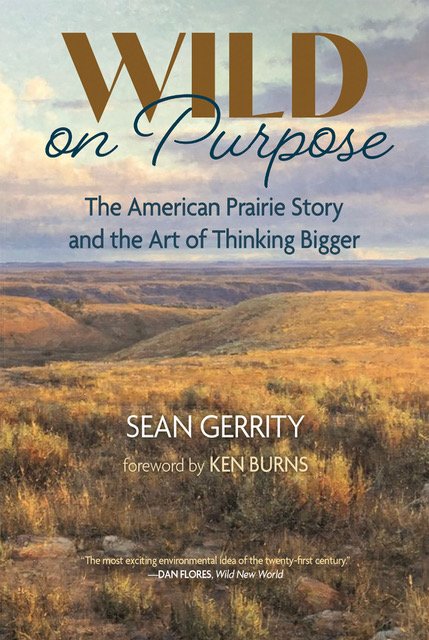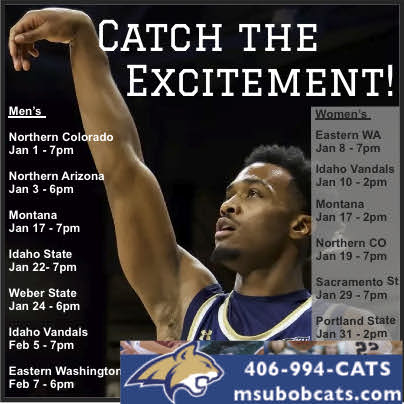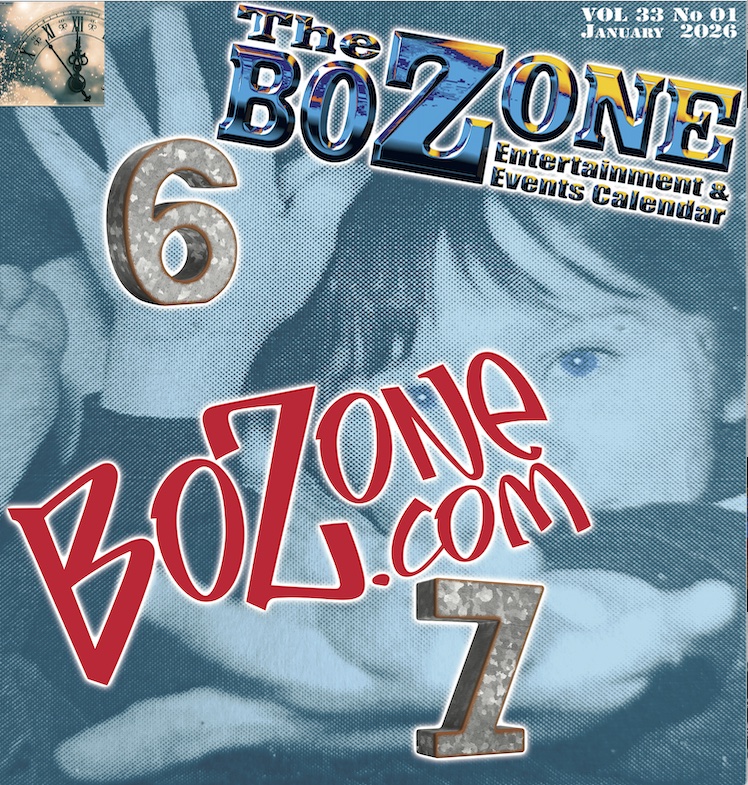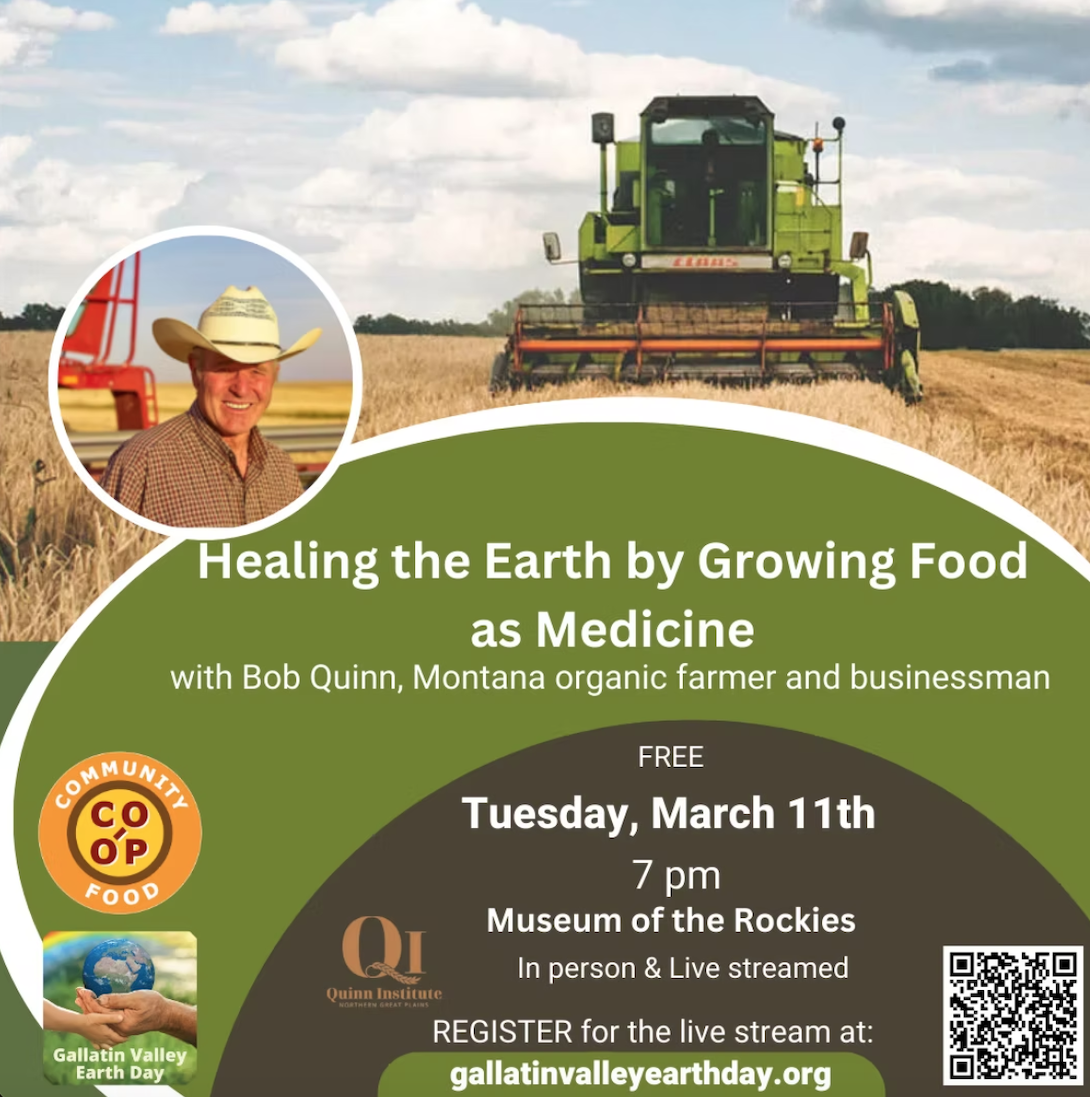Cruisin’ with Grusin: Jeff Bridges to present Grammy great with BZN Lifetime Achievement Award
by Cynthia Logan
Ten time Grammy-winning composer/producer/pianist Dave Grusin is the subject of Not Enough Time, a new documentary screening at the Second Annual BZN International Film Festival Saturday, June 8th in the Emerson’s Crawford Theater. The title reflects Grusin’s main complaint about scoring films: “I never felt like I had enough time; from the moment you get the film’s final cut, there’s usually not a lot of time before they need it back.”
Grusin has had one of the most phenomenal careers in the history of music, and he’s still going strong. Having scored some 60 features (including On Golden Pond, Three Days of the Condor, The Firm, and Tootsie), he clearly used the time he did have very well, earning an Oscar for his score to Robert Redford’s 1988 film, The Milagro Beanfield War.
GRP, the record label Grusin started with Larry Rosen in the ’70s, initially released records as Arista/GRP. They went independent in 1982 and GRP quickly became an industry leader in contemporary jazz – and a pioneer in digital recording. Grusin produced many of the label’s recordings, including his own. “The recording business isn’t anything like what it used to be,” he says now. “I don’t even know if there is a business. We used to make albums and wonder how to promote them. If that’s going on today, I don’t see it. I don’t understand how you can control your life and your product. If I were younger, that’s exactly what I would be trying to figure out.”
Veteran Rolling Zone columnist Cynthia Logan caught up with Grusin, who splits his time between Montana and New Mexico, ahead of the screening in Bozeman. Known for an amazing work ethic and attention to detail, Grusin called exactly on the appointed minute. The conversation covered his esteemed career, his love of fly-fishing, the changes that come with maturity, and changes in the music industry.
Rolling Zone: You love to fish; do you see analogies between your state of mind in preparing to get out on the water and composing or playing the piano?
Dave Grusin: It’s not very esoteric but the truth is I have to give up working in order to fish. There’s a general opinion about fishing being a totally wonderful way to lay back, but my experience is that it’s intense. Think about the humanity of trying to tie the perfect fly and get the perfect drift to catch this thing with a brain the size of a pea. We put everything back, so it’s not about survival… it’s an obsession that gets out of hand. The bottom line is you work so hard to try to be perfect; there is no perfection, but you get as close to perfect as you can.
RZ: You’ve noted that things deteriorate as we get older and that when abilities that came naturally stop working, ‘you have to find ways to fix it.’ You’ll be 84 next month; what are some things that work differently now, and how do you fix them?
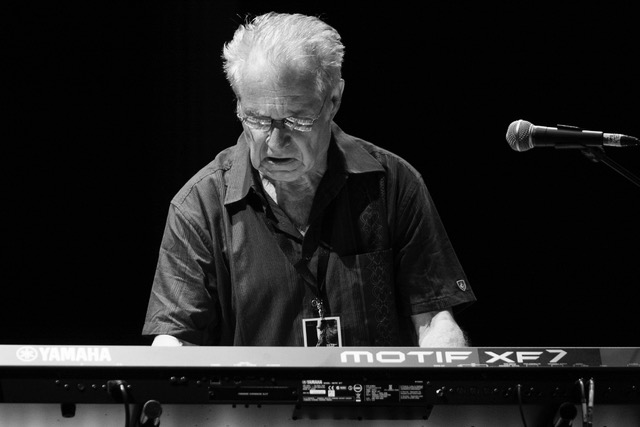
DG: Well, the losses connected with the aging process are amazing. It’s like getting an education about all the stuff we thought we could do, but never learned to analyze. Even walking, standing upright; now we have to take it apart and analyze it. There’s a new sensibility about the learning process. I don’t practice on a regular basis but I will try to make everything work if I have a performance coming up. It’s a shock when you sit down and play things you used to take for granted you could play and now have to work at.
RZ: You were an early-adopter of synthesizers; can you elaborate on the development of GRP’s ground-breaking sound?
DG: We were in the throes of starting a record label about the same time that electronic music was becoming part of the sound of pop music. Larry (Rosen) was fascinated with sound and taught himself to be a recording engineer. He was trying to incorporate some of the new sonic elements and effects used extensively in pop, like echo and echo repeat; he was reinventing the sound of everything. It became kind of a stamp for GRP, the way he mixed contemporary sound using technology. We got into kind of crossover music, say, fusing R&B elements, or pop and classical. It was fascinating to me, using technology to enhance what we were trying to do acoustically. I actually used to think of synthesizers as another section of the orchestra with a different function. It was a nice time to be in the record business.
RZ: Along those lines, what do you think of ‘sampling’?
DG: First of all, the rap element of pop music… when it was beginning, I didn’t understand why it was attractive to an audience. In a sense it’s more basic – you don’t have to think of melody; it’s about delivering a message. I’m a little too old to get heavily involved with rap, but there are some amazing rhythmic tracks. I like to sit and listen without the solo. I worked a lot of years with Quincy Jones. He dabbled in all that as it came along, so that was fascinating. I look at the whole spectrum as the gist of a constant education, something we’ll never finish.
RZ: Tell us about your composition process, especially the advice Henry Mancini gave you about finding a musical texture to complement sound effects (‘You don’t have to write a lot of notes to do that’).
DG: Every film is different and has different musical needs. They send scripts so I know what the story is about; I try to get a rough cut as soon as possible to get a feeling of what it’s looking like; that triggers musical ideas for me. I have a greater sense of the audio-visual aspect than I do of writing for a story. If place (Havana, say) has a big part in the story, that inspires me. I look for these hand holds when I’m groping through the process. In the final analysis, how they edit the film has great deal to with composing… what is the tempo of this particular scene? In a lot of films every move on the camera is accented by a musical element. What Hank (Mancini) was talking about – a chase scene, for example – is the texture of the sound. It may be better if you don’t try to match the tempo; maybe keep it sustained but have an edge to it. Find a mood direction rather than jumping on the cuts. The job of a film composer is to help the audience get into the center of the film without banging them on the head about it.
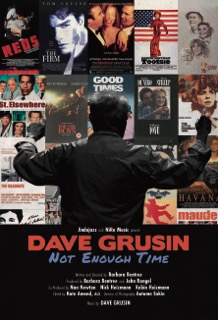
RZ: Not Enough Time includes stories about your adventures during the 1960s in France and Brazil working with Quincy, Michel Legrand, Antonio Carlos Jobim and others – can you share one of your favorites?
DG: I fell in love with Brazilian music in terms of Samba and Bossa Nova trying to make inroads into our own culture. It’s fascinating sociologically… the music is so infectious I became interested in the country; at one time I thought about moving there! That was another kind of dream. I’m still heavily involved with Brazilian music. In August, Lee (guitarist / collaborator Lee Ritenour) and I are going to play the Hollywood Bowl with Brazilian jazz pianist Ivan Lins. We recorded the album ‘Harlequin’ with him years ago. He is showing up in our lives again – we have a tour lined up for Japan.
RZ: How was your recent gig with Lee in Ukraine?
DG: It was fascinating; I had traversed through part of the country during an old flyfishing expedition in Finland but this was the first time I had a chance to look around. The area we were in used to be Poland; I still haven’t been to the center of the Ukranian art situation. My dad came from Riga, Latvia but his family was from Tblisi, Georgia before it was Russia. I guess I have those kind of roots. I’m fascinated by any kind of music that has geographic or nationalistic elements. The classical music I love all has roots in the folk music from where it was derived. I’m thinking of Bartok, the Hungarian folk sound.
RZ: You and your wife Nan have three sons, two of whom (Stuart and Scott) are music editors, while your son Michael is an aerospace engineer!
DG: If I understood half of what Michael tells me I’d feel really good. He thought about being a musician but got involved heavily in the space industry, avoiding the craziness of the music scene.
RZ: You were interested in becoming a large animal veterinarian – is your Montana home a working ranch, and do you have pets?
DG: We bought the Raw Deal Ranch in the ‘80s from Thomas McGuane, who moved upstream. We’ve always had cows on the place so we grow hay and treat it like a working ranch. We’ve had dogs for many years but lost two of them, both yellow lab rescues. The last one was just over a year ago on Valentine’s Day. I can’t quite get in the mood to replace that animal; she was such a part of our family.
RZ: Who do you most admire as a jazz pianist?
DG: A lot of people – so far my favorite was (the late) Bill Evans; his whole sensibility and how he approached it – the touch had a lot to do with it. He was a wonderful composer, as well. Art Tatum was one of the early ones in terms of technique: I couldn’t figure out how anybody could do that on a piano! Terry Lynn Carpenter… I think John Legend is talented and love his musicality. I don’t know if he’s hit his mark yet, and I don’t know how he manages the business and marketing aspect. I’m really out of the maelstrom. The music business has changed so much I finally decided I either have time to do that or get some work done.
RZ: Can you comment on how musicians interact with their instruments?
DG: I sense that when you’re first learning an instrument, say, preparing a lesson or getting something together for your teacher, your concentration is on flexibility and speed. It takes a minute after you fall in love with the instrument to start thinking about the actual sound… what does it sound like without trying to play every note in the world in one bar? It becomes another obsession… when you get into that mode all people are affected, whether or not they’re aware of it. It makes what they’re listening to come alive musically as opposed to being amazed by fantastic technique.
Dave Grusin will be presented a Lifetime Achievement Award by Jeff Bridges after the screening of Not Enough Time. The event, which begins at 8pm, is open to BZN Festival passholders at all access tiers. For a full schedule and film previews, visit bozemanfilmcelebration.com. •


